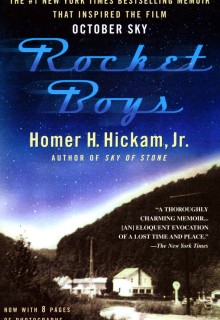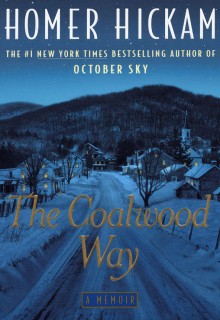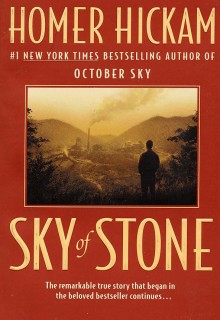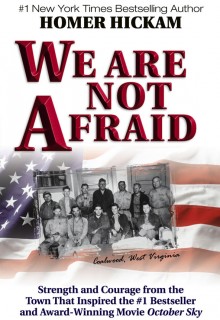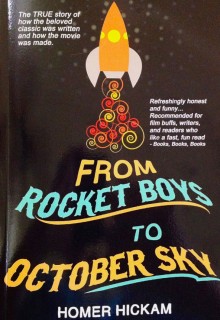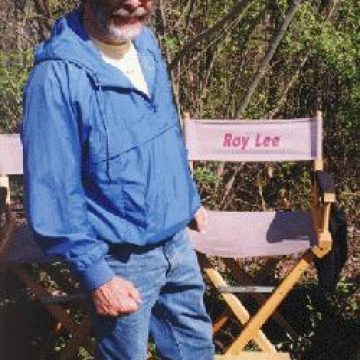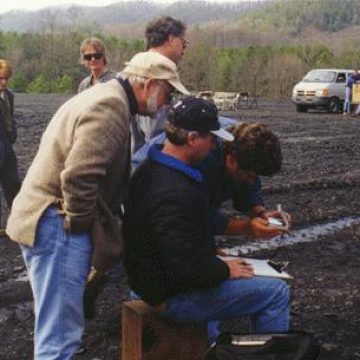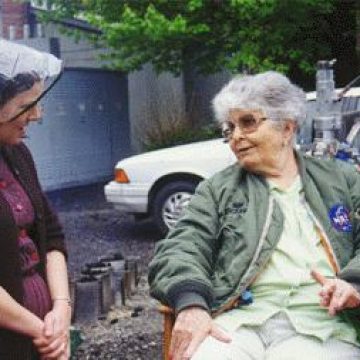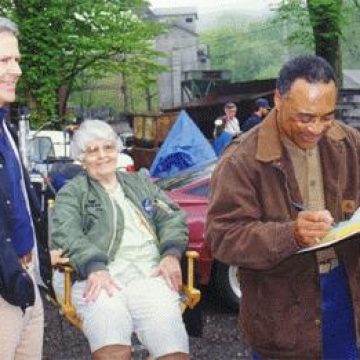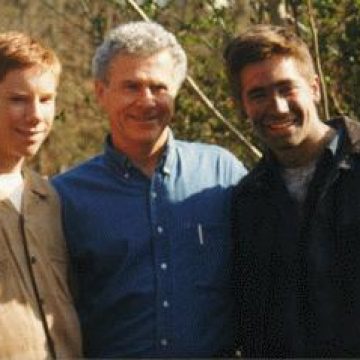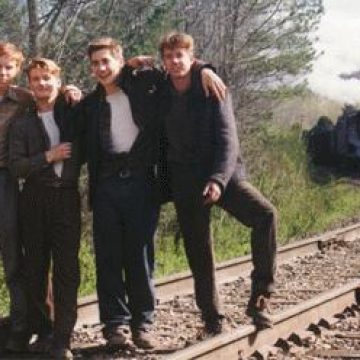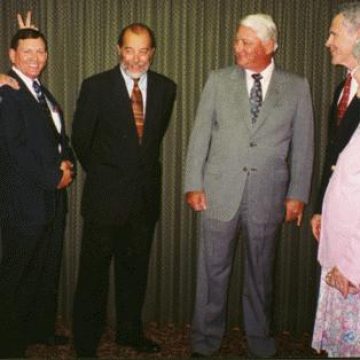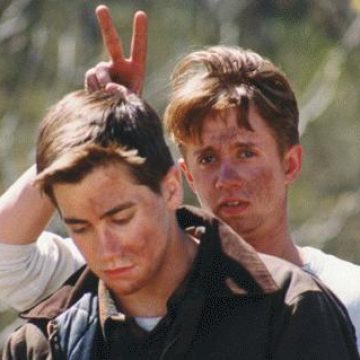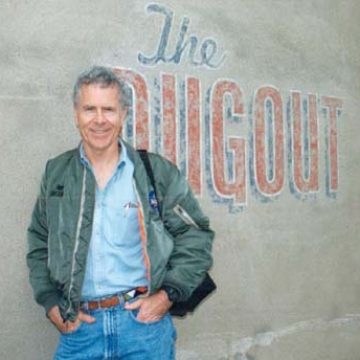Rocket Boys
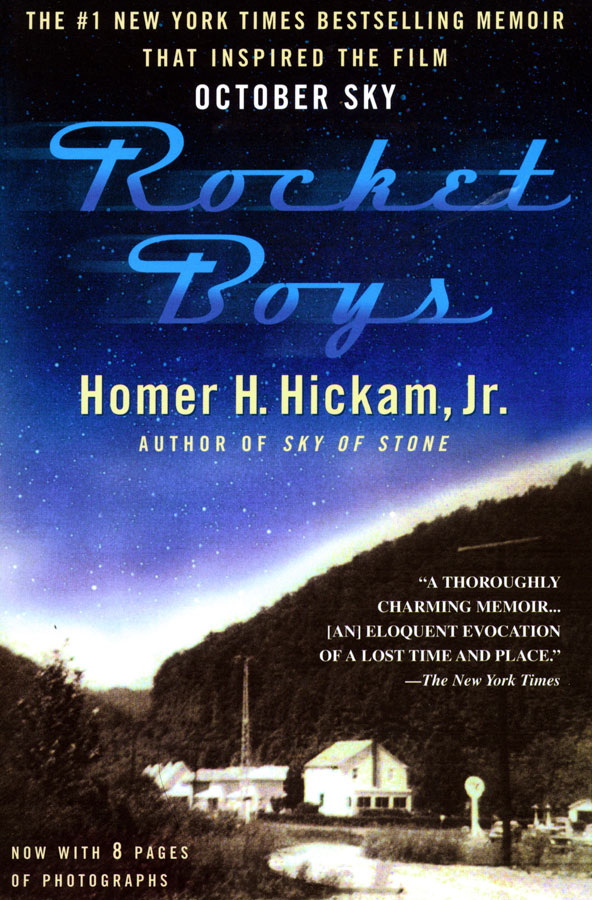
Homer Hickam’s short article about his life as a young boy growing up in Coalwood, WV and aspiring to be a rocket scientist was called “The Big Creek Missile Agency” and was written for Air & Space Magazine in 1994. It received so much acclaim and interest, he was asked to write a book detailing the whole story. Rocket Boys: A Memoir was published by Delacorte Press in September 1998 and the movie based on it, October Sky premiered nationwide on his birthday February 19, 1999. The title of the paperback released at the same time was changed to the movie title, which is an ANAGRAM of Rocket Boys (take the letters of rocket boys and move them around to spell october sky!) It is also available in abridged audio book, electronic book, large print, and is a Reader’s Digest Condensed Book. Homer Hickam’s short article about his life as a young boy growing up in Coalwood, WV and aspiring to be a rocket scientist was called “The Big Creek Missile Agency” and was written for Air & Space Magazine in 1994.
Rocket Boys has been translated into eight languages and has received many awards. It was selected by the New York Times as one of its Great Books of 1998 and was an alternate Book-of-the-Month selection for both the Literary Guild and Doubleday book clubs. It was also nominated by the National Book Critics Circle as best Biography of 1998.
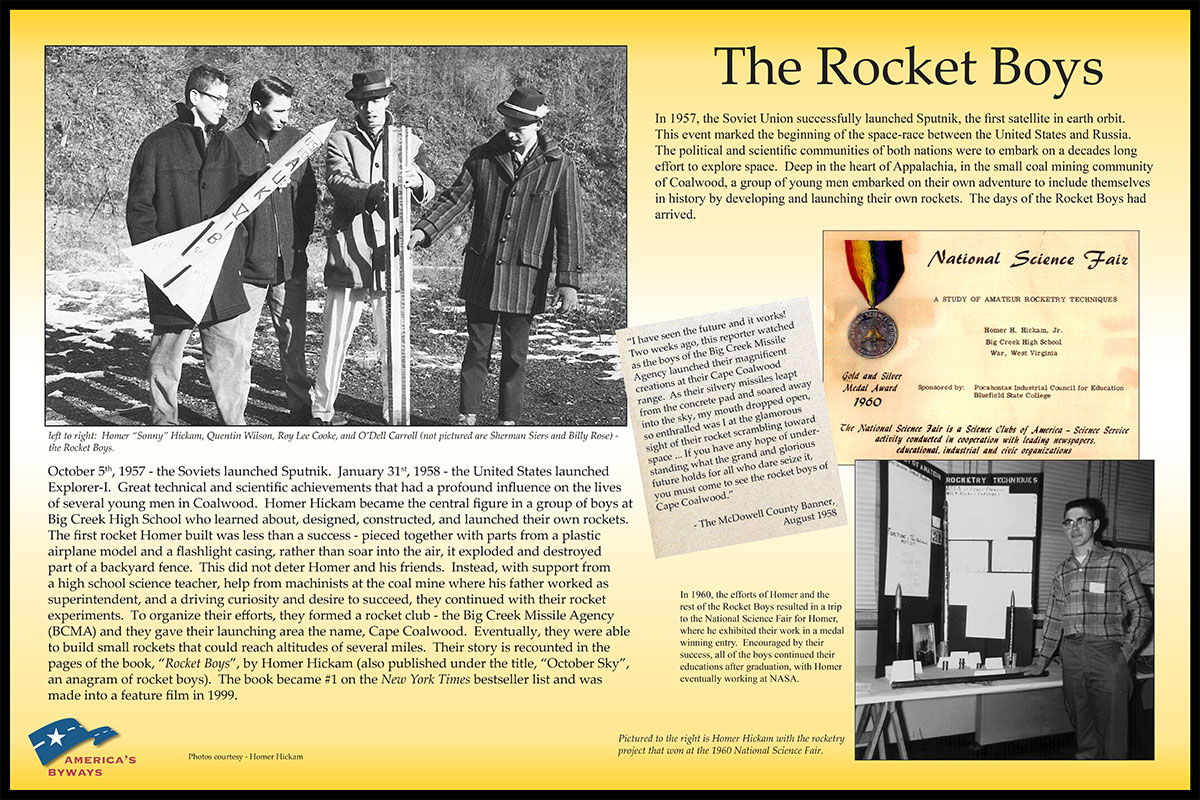
Order Online
Book Reviews
From Publishers Weekly
Great memoirs must balance the universal and the particular. Too much of the former makes it overly familiar; too much of the latter makes readers ask what the story has to do with them. In his debut, Hickam, a retired NASA engineer, walks that line beautifully. On one level, it’s the story of a teenage boy who learns about dedication, responsibility, thermodynamics and girls. On the other hand, it’s about a dying way of life in a coal town where the days are determined by the rhythms of the mine and the company that controls everything and everybody. Hickam’s father is Coalwood, WV’s mine superintendent, whose devotion to the mine is matched only by his wife’s loathing for it. When Sputnik inspires “Sonny” with an interest in rockets, she sees it not as a hobby but as a way to escape the mines. After an initial, destructive try involving 12 cherry bombs, Sonny and his cronies set up the Big Creek Missile Agency (BCMA). From Auk I (top altitude, six feet), through Auk XXXI (top altitude, 31,000 feet), the boys experiment with nozzles, fins and, most of all, fuel, graduating from a basic black powder to “rocket candy” (melted potassium chlorate and sugar) to “Zincoshine” (zinc, sulfur, moonshine). But Coalwood is the real star, here. Teachers, clergy, machinists, town gossips, union, management, everyone become co-conspirators in the BCMA’s explosive three-year project. Hickam admits to taking poetic license in combining characters and with the sequence of events, and if there is any flaw, it’s that the people and the narrative seem a little too perfect. But no matter how jaded readers have become by the onslaught of memoirs, none will want to miss the fantastic voyage of BCMA, Auk and Coalwood. First serial to Life. 10-city author tour. (Sept.) FYI: Rocket Boys is currently in production at Universal, which plans to release it later this year titled October Sky.
Copyright 1998 Reed Business Information, Inc.
From Amazon.Com
Inspired by Werner von Braun and his Cape Canaveral team, 14-year-old Homer Hickam decided in 1957 to build his own rockets. They were his ticket out of Coalwood, West Virginia, a mining town that everyone knew was dying–everyone except Sonny’s father, the mine superintendent and a company man so dedicated that his family rarely saw him. Hickam’s smart, iconoclastic mother wanted her son to become something more than a miner and, along with a female science teacher, encouraged the efforts of his grandiosely named Big Creek Missile Agency. He grew up to be a NASA engineer and his memoir of the bumpy ride toward a gold medal at the National Science Fair in 1960–an unprecedented honor for a miner’s kid–is rich in humor as well as warm sentiment. Hickam vividly evokes a world of close communal ties in which a storekeeper who sold him saltpeter warned, “Listen, rocket boy. This stuff can blow you to kingdom come.” Hickam is candid about the deep disagreements and tensions in his parents’ marriage, even as he movingly depicts their quiet loyalty to each other. The portrait of his ultimately successful campaign to win his aloof father’s respect is equally affecting.
–Wendy Smith.
Amazon.com Reader Review rating: 5 stars out of five
The Making of October Sky
- Roy Lee Cooke visits the October Sky set.
- On Set: O'Dell Carroll supervises a rocket launch at Cape Coalwood.
- On Set: The real Elsie meets the actress Elsie (Natalie Canerday).
- On Set: Mr. Bolden (Randy Stripling) signs a script for Homer and Elsie.
- On Set: Chris Owen (Quentin Wilson), Homer Hickam, and Jake Gyllenhaal (Homer Hickam).
- On Set: (L-R) Chris Owen, (Quentin), William Lee Scot (Roy Lee), Jake Gyllenhaal (Homer), Chad Lindberg (O'Dell)
- Some Rocket Boys never grow up! (L-R) Jimmie "O'Dell" Carroll, Billy (Willie) Rose, Roy Lee Cooke, Quentin Wilson, Homer "Sonny" Hickam and Elsie Hickam
- Wonder where he learned that? On set: Chad Lindberg as "O'Dell" and Jake Gyllenhaal as Homer
- Homer in front of the Dugout set during filming of October Sky
